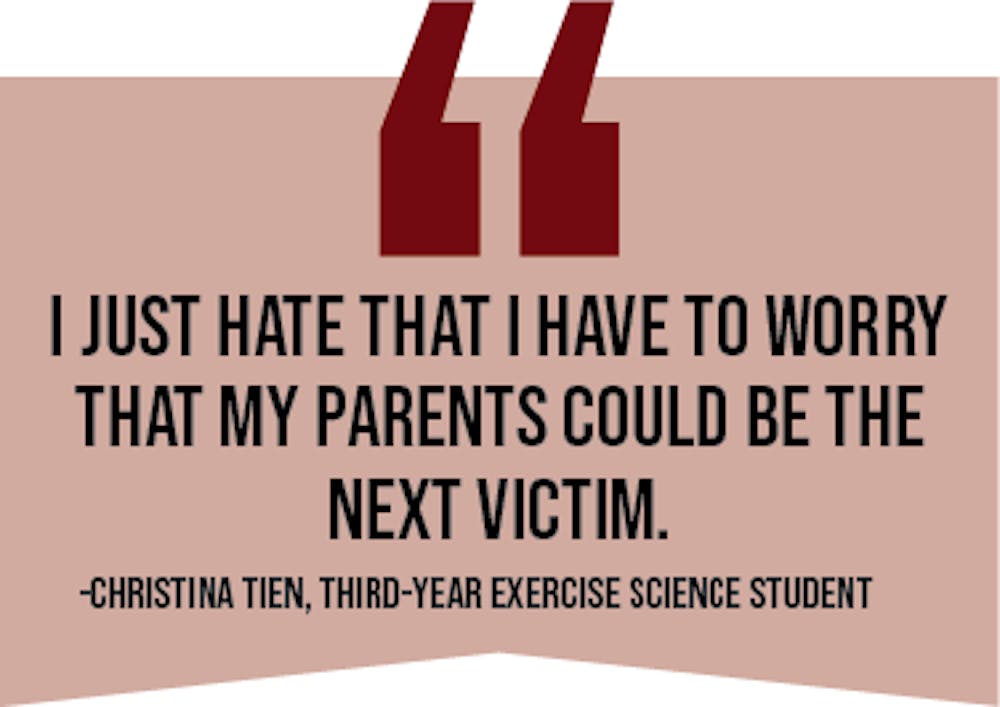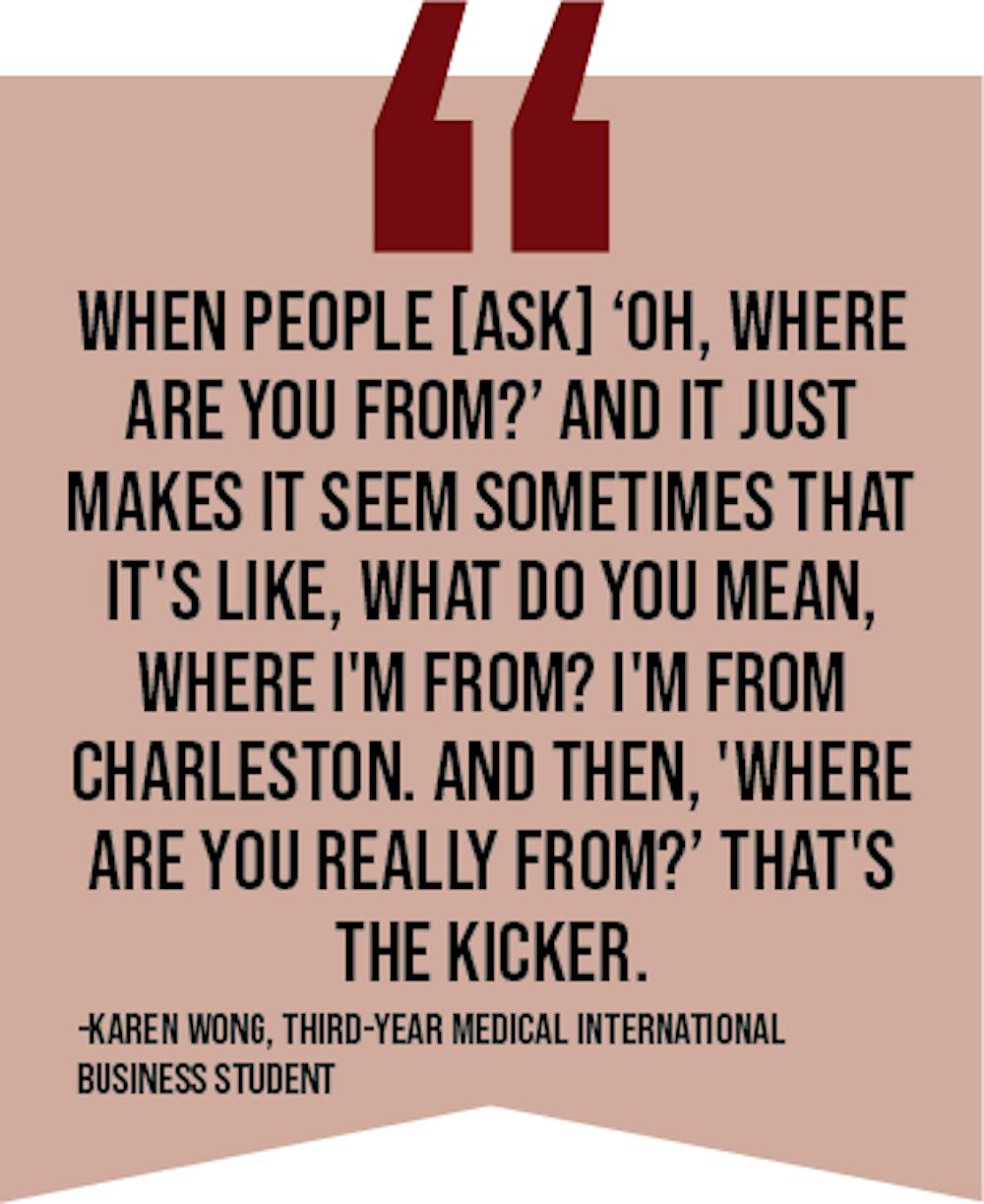Fourth-year pharmacy student Tiffany Nguyen said her aunt was sprayed with disinfectant by a customer at the Bi-Lo pharmacy where she works in the Charlotte/Fort Mill area. Her uncle, who also owns a pharmacy, was robbed.
“My mom would see so many stories on the news, and she'd be like, ‘Don't leave your house.' She was literally terrified. I was like, 'Mom, I have to go get groceries.' I have to go do certain stuff, I have to go to work, because I also work in healthcare. And she's like, ‘I don't want people to treat you any differently,’” Nguyen said.
Reports of discrimination and harassment against Asians and Asian Americans have increased since the COVID-19 pandemic began last March. According to research done by assistant professor Jungmi Jun, nearly one-third of 800 Asian Americans surveyed said they had experienced discrimination related to the pandemic.
"More than 70 percent of victims said they were told to 'go back to their country.' Nearly half said they experienced a physical attack," Jun's research says.
Third-year international business student Karen Wong's research shows that 2,100 anti-Asian American hate incidents related to COVID-19 were reported between March and June of 2020. Wong is working on a project to document experiences of Asians and Asian Americans facing discrimination and violence.
Wong said her project is about encouraging awareness and conversations about the issue, which is receiving attention on social media as the "Stop Asian Hate" hashtag. The "Stop Asian Hate" hashtag has been making rounds on social media, getting attention from celebrities, and the slogan is being embraced as a campaign by the New York City government.
“It's not just a stat, it's not ... just a hashtag, ‘Stop Asian Hate,'" Wong said. "We're human, too. We have feelings and experiences that are real; they're valid, and a lot of people, because of our culture, we don't talk about it, and it's like, don't normalize our silence for acceptance."
Graduate linguistics student Anusha Anand said she heard of harassment against Asian and Asian American students on campus from Chinese international students.
“They had heard of students being verbally assaulted — specifically, East Asian students being verbally assaulted — outside the library. And this was March 2020, I believe,” Anand said.
Vice provost Paul Allen Miller, the former director of Global Carolina, said early in the pandemic, people were "very frightened." He said the Global Carolina office had indirectly heard of faculty members asking if they could "prevent Asian students from coming to their classes because they thought they might get infected" and had "parents calling, asking if they could pull their students out of classes with Asian students."
Third-year cardiovascular technology student Ho Yen said people kept their distance from him and mentioned “the Chinese flu” while he waited at the Amtrak station in Columbia.
“What people don't realize — it's like, not everyone's from China, or even if they are from China, they don't have it,” Yen said.
Some students said they are worried for family members' safety as a result of the spike in harassment.

“I just hate that I have to worry that my parents could be the next victim,” third-year exercise science student Christina Tien said, whose parents came to America from Vietnam because of the Vietnam War.
The university's Office of Diversity, Equity and Inclusion released a statement condemning the attacks in 2020.
"We are deeply concerned about rising xenophobia and sinophobia aimed at the Asian community in this country and abroad over the COVID-19 virus," the statement said.
Students also reported experiencing microaggressions on campus that are unrelated to the pandemic.

“You hear a lot of, like, ‘Oh, nǐ hǎo,’ which like, I don't know if it's supposed to be a joke, but there are a lot of Asian Americans who either don't speak their native — like, mother tongue — or they might not be Chinese,” third-year pharmacy student Nikki Chen, who is Taiwanese American, said. "Everyone assumes that every Asian or Asian American is Chinese."
Wong said people who aren't of Asian descent often approach asking about Asian culture in the wrong way.
“When people [ask] ‘Oh, where are you from?’ and it just makes it seem sometimes that it's like, what do you mean, where I'm from? I'm from Charleston. And then, 'Where are you really from?’ That's the kicker,” Wong said.

